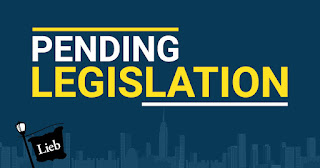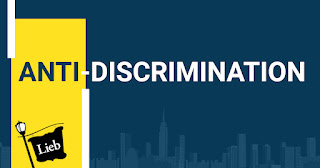Last week, HHS issued a "clarification" to their final rule "Nondiscrimination on the Basis of Disability in Programs or Activities Receiving Federal Financial Assistance," which creates more confusion than it solves and is expected to lead to litigation.
The clarification is that the actual regulatory text of the final rule does not include gender dysphoria as a disability. Instead, it aligns with existing exclusions in federal law (29 U.S.C. 705(20)(F)), which exclude "gender identity disorders not resulting from physical impairments" from the definition of disability.
However, this can clarification can lead to litigation because it creates confusion with the New York State Human Rights Law (NYSHRL) by not explaining that states and locales can have more protections. In fact, the NYSHRL has broader protections in that it explicitly prohibits discrimination based on gender identity. This protection is significantly broader than the federal stance clarified by HHS, which, based on the Rehabilitation Act and ADA exclusions, does not recognize gender dysphoria as a disability in its regulatory text (unless it results from physical impairments). This creates a direct conflict:
- Federal Level: Under federal regulations, as clarified, individuals experiencing gender dysphoria (not resulting from physical impairments) may not be considered disabled and thus may not be protected under federal disability non-discrimination laws in programs receiving federal funding.
- New York State Level: Under the NYSHRL, discrimination based on gender identity is explicitly prohibited, regardless of whether it's classified as a disability under federal law. This means individuals in New York experiencing discrimination related to their gender dysphoria could have legal recourse under state law, even if they don't under the clarified federal interpretation.
- Individuals: People with gender dysphoria in New York might be unsure of their rights and protections. They might incorrectly believe that the federal clarification limits their rights under state law.
- Entities Receiving Federal Funding in New York: Organizations and programs receiving federal funding in New York are obligated to comply with both federal and state anti-discrimination laws. The federal clarification might lead some to mistakenly believe they don't need to accommodate individuals with gender dysphoria under disability non-discrimination principles, even though the NYSHRL's broader definition of discrimination based on gender identity would still apply. This could lead to discriminatory practices and subsequent litigation under state law.
- Potential for Legal Challenges: The federal clarification could be used by defendants in New York state law discrimination cases to argue that gender dysphoria is not a disability and therefore not protected under disability-related provisions, even though the NYSHRL's protection is based on gender identity, not solely disability status. This could lead to legal challenges where courts in New York will need to clearly delineate the scope and applicability of the NYSHRL's protections for gender identity in light of the federal clarification.
- Enforcement Discrepancies: State agencies in New York responsible for enforcing the NYSHRL may continue to investigate and prosecute discrimination claims based on gender identity, even if the federal government takes a different approach based on its disability regulations. This difference in enforcement could lead to further confusion and potential legal clashes.
While the HHS clarification aims to resolve ambiguity at the federal level regarding the enforceability of preamble language, it simultaneously creates a potential conflict and source of confusion with the broader protections offered by the New York State Human Rights Law concerning gender identity. This divergence in legal interpretation and scope is likely to lead to litigation in New York as individuals and the state seek to uphold the protections afforded under state law.





